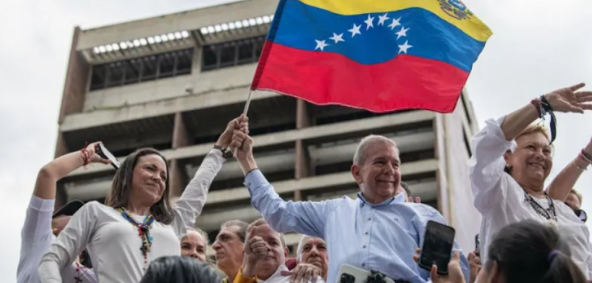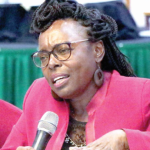Venezuelan opposition candidate Edmundo González has pledged to “continue to fight” for democracy in his homeland after being granted asylum in Spain. González, who had spent weeks in hiding at the Spanish embassy in Caracas, departed Venezuela on Saturday. He arrived at the Torrejón de Ardoz military air base in Madrid with his wife around 16:00 local time (14:00 GMT).
His departure followed unrest after the July 28 elections, in which President Nicolás Maduro claimed victory—a result disputed by González and many in the international community. In an audio message distributed by his press team, González expressed confidence that the fight for freedom and democracy in Venezuela would continue.
Before leaving, an arrest warrant had been issued against González in Venezuela, accusing him of conspiracy and forging documents, among other serious charges. He thanked his supporters for their solidarity and confirmed his arrival in Spain, noting that his departure from Caracas had been marked by “pressure, coercion, and threats” aimed at preventing him from leaving.
Opposition leader Maria Corina Machado had earlier shared on social media that González decided to leave the country because his life was in danger, citing a “brutal wave of repression” following the election. Machado, a popular opposition figure, was expected to run against Maduro but was blocked from doing so by institutions loyal to the president.
The opposition claimed it had evidence that González won the election by a wide margin and posted detailed voting tallies online suggesting that he had convincingly defeated Maduro. The U.S., the EU, and many foreign governments have refused to recognize Maduro as the winner without the release of detailed voting data from Caracas.
In a statement on Sunday, U.S. Secretary of State Antony Blinken said González’s departure was a result of the “anti-democratic measures” Maduro had unleashed on the Venezuelan people, including González and other opposition leaders, since the election.
Blinken affirmed, “The election results and the will of the people cannot be swept aside by Maduro and the Venezuelan electoral authorities. We stand with González Urrutia in his call to continue the struggle for liberty and the restoration of democracy in Venezuela.”
Earlier on Sunday, Josep Borrell, the Vice-President of the European Commission, remarked: “Today is a sad day for democracy in Venezuela.” He emphasized that “in a democracy, no political leader should be forced to seek asylum in another country.” Borrell called for an end to the oppression of opposition leaders in Venezuela and urged the release of all political prisoners.
Speaking at a socialist party meeting on Saturday, Spanish Prime Minister Pedro Sánchez referred to Edmundo González as “a hero who Spain will not abandon.” Meanwhile, Spain’s Foreign Minister José Manuel Albares confirmed that Madrid would grant González asylum, stating that the country is “committed to the political rights” of all Venezuelans.
González’s departure coincided with a situation in Caracas, where Venezuelan security forces surrounded the Argentine embassy, where six opposition figures have sought refuge. The Venezuelan foreign ministry claimed that terrorist acts were being planned inside the embassy.



